
Differences in the Old Greek Version of Daniel (Chapter 8)
The ram and the goat
This chapter of the ‘Old Greek’ version of Daniel contains 27 verses. Of these, 14 have differences.
The text is more historically accurate than the Hebrew version. Also, the Old Greek reveals that the Hebrew text may, possibly, have been deliberately altered to make it sound like it’s pointing to a false Messiah, Simon bar Kochba.
If that’s true, then the Old Greek version is a ‘lifeboat’ preserving a more authentic, original, and historically accurate version of the prophecy.
Historical accuracy
The Old Greek text has the ‘ram’ (the Persian Empire) standing at the ‘Gate of Elam,’ where it starts its attacks. Historically, that’s what happened. They conquered Elam before then conquering Babylon and the entire region.
Also, the Old Greek text describes the longer horn as ‘growing.’ This fits with the historical fact that the influence of the Persians grew until they were entirely dominant over the Medes. The Masoretic text, however, says the longer horn ‘grew last.’ This implies that the Persians were not around and only joined in later, which is not what happened. They were there from the start and began growing in influence over the Medes immediately.
Secondly, if we take the prophecy seriously, one could make a strong argument for the Old Greek text being a prophecy about the time of the Maccabees, and that it fits that interpretation much more than the Hebrew version.
If you’re unfamiliar with the story, the Maccabees were a group of Jewish rebels who revolted against the Seleucid Empire between 167 and 134 BC. That was a Hellenistic empire that ruled over the Jews. They stopped the Jews from sacrificing to Yahweh, and even tried to force them to sacrifice to Zeus. There was a lot of suffering and extreme violence. It’s a pretty harrowing and tragic story, but the events are very important, so it’s well worth reading.
The Maccabees were victorious, and set up an independent Jewish state, which lasted for a few decades. It’s the origin of the Jewish holiday of Hanukkah.
If one reads the Old Greek text, this prophecy fits that time exceptionally well, arguably more so than the Hebrew version.
The 2,300
The mysterious ‘2,300’ appears to apply to the time of the Maccabees. It’s the duration of time that the sacrifices were stopped at the temple in Jerusalem.
It was stopped in December 167 BC, until it was rededicated by the Maccabees in 164 BC.
You see, there were two daily sacrifices at the temple, one in the morning, and one in the evening, so 2,300 of these would be 1,150 days, which is about 3 years and 2 months. And that’s roughly how long the sacrifices were stopped.
The hiatus was caused by king Antiochus IV Epiphanes, who was the Seleucid king at the time.
Just as the prophecy says, he was shameless in how he treated the Jews, and did promote a lie (the worship of Zeus), and he did use a small group of people to accomplish this (the faction of traitorous Hellenistic Jews who supported him).
He even rose to power, as it says in the prophecy, ‘not from his own power.’ How? By stealing the power from someone else. You see, he wasn’t the legitimate heir. He stole the crown from his own nephew by having him murdered.
So the Old Greek text fits the events of the Maccabees well.
Altered to sound like AD 70?
The Hebrew version, however, with it’s slight adjustments, sounds less like the events of the Maccabees, and more like a prophecy about the events of AD 70 (when the temple was destroyed) and the Jewish wars that followed.
Remember, the Pharisees were accused of tampering with prophecies of the Messiah to discredit Christianity and Jesus. Well, in the early 2nd century AD (years after Jerusalem’s destruction by the Romans), the Talmudic writings report that the Pharisees were under the influence of Rabbi Akiva. He was actively trying to promote a Jewish military leader called Simon bar Kochba as the Messiah.
Well, if Rabbi Akiva and his supporters changed this text to make it sound less like a prophecy about the Maccabees, and more like the recent events of AD 70 and their false Messiah, it provides a reasonable explanation of all important differences…
If you read all of these differences in context, you’ll see exactly what we mean by this.
Here’s a summary of the suspicious changes, additions, and removals.
Changes:
- Verse 8:9 refers to the land of Israel instead of the ‘north,’ changing the location of events.
- 8:11 updates a mention of the army chief to give it messiah-like language, but implying that even he will be attacked, matching up with late 1st century AD events around Simon bar Kochba.
References to AD 70 added:
- Also in 8:11, a reference to the temple’s destruction appears, something that didn’t happen until AD 70.
- Next, 8:12 gains a reference to an ‘army,’ suggesting military conflict more in line with AD 70 events.
- Then 8:13 is updated from saying that mere ‘holy things’ will be destroyed, to saying that ‘the Temple’ and the (presumably Jewish) ‘army’ will be defeated. Again, this only happened in AD 70.
Removal:
- The fairly clear references to the events of the Maccabees in 8:25 are turned into something that sounds like a Messianic prophecy.
We feel that the Old Greek text could very well preserve a better, more original, and more historically accurate version of this prophecy. So could the Hebrew version be altered by someone to insert references to AD 70 and to promote the 2nd century false ‘Messiah’ Simon bar Kochba?
Maybe, but it’s not so simple. One compelling argument against this is how the reference in 8:13 to the ‘temple’ also appears in the Dead Sea Scrolls fragment of Daniel, and that is believed to date to around 150–100 BC, based on the writing style.
This has led some to suggest that there were already different versions of Daniel floating around in the 1st century AD, and the Pharisees chose the version that was most useful to them.
So there are a lot of unknowns.
But for sure, somebody, somewhere, did change one of these texts for some reason. As for which version is the more original, that’s up for debate. We think it’s probably the Old Greek version.
Differences
Note that the Masoretic Text switches back to Hebrew from now on.
8:1
No important differences.
8:2
The Old Greek text has DaniEl standing in front of the ‘Elam Gate,’ which sounds like some important gate of the city. The Hebrew, however, does not mention this ‘gate’, instead saying that he was at the ‘River Ulai.’
What’s interesting is how the ‘massive ram’ that DaniEl next sees would quite fittingly be at the Gate of Elam, because it’s then described as invading in all directions. This fits what actually happened historically, as the Persians did indeed attack and invade the land of Elam before then conquering Babylon and the entire region!
The difference can’t be explained by a simple translation error, or later Greek copyist error, as the differences are too great.
And, by the way, there really is a river called Ulai, mentioned in many ancient sources, and it’s in the same region as Elam. Sometimes it’s called the Eulaios or Eulaeus. Today it’s called the Karkheh. While there’s no particularly famous gate at Ulai or anywhere else called the ‘Gate of Elam,’ all major cities had large gates, and their individual names have not always survived.
So, for some unknown reason, it was deliberately changed, either in translation, or later in the Hebrew.
All we know is that the Old Greek version is more specific and more historically accurate.
8:3 (i)
The Old Greek text again mentions the goat being in front of the ‘Gate of Elam,’ with the Hebrew yet again mentioning the river instead.
8:3 (ii)
There’s an ever-so-slight difference between how the two texts describe the horns.
The Old Greek text says the taller horn was:
‘…still growing,’
But the Hebrew says the taller horn,
‘…grew last.’
Some archaeological evidence suggests that the smaller nation of the Medes, and the larger nation of the Persians were initially acting as equals… But eventually, the Persians became entirely dominant.
In other words, the Old Greek description fits slightly better, because it describes the taller horn as still rising, whereas the Hebrew implies that the higher one only appeared last, which is not what happened.
However, the difference could be a translation error, or if the translator was working from a manuscript that was missing the word ‘last.’ Alternatively, the word ‘last’ could have been added later in the Hebrew. We really don’t know. All we know is that the Old Greek that’s come down to us today does appear to fit the actual history better.
8:4
The Old Greek text says the ram charges in all four directions (east, north, west, and south), but the Hebrew text only lists three (west, north, and south).
Again, this means the Old Greek text is more accurate, because the Persian Empire (more properly called The Achaemenid Empire) did indeed expand in all four directions. It didn’t only expand in the west, north, and south…
It went all the way east to what’s now India!
The simplest reason for the difference is there was an accidental loss when copying the Hebrew text. This is very likely, because this verse is one of the very few preserved in the Dead Sea Scrolls, and in there, ‘eastward’ is present. So the word was very likely lost sometime before the Masoretes started their more careful preservation work.
8:5-6
No important differences.
8:7
The Old Greek text says the ram was torn apart by the goat, but the Hebrew text says it was cast down to the ground. This difference may not matter much, as the two expressions are similar — but who knows?
There’s no obvious misreading or copyist error possible here. Perhaps the translator wanted to make it more colorful? Or perhaps the Hebrew was later updated to make it less colorful?
8:8
No important differences.
8:9
The Old Greek text says the goat attacked to the south, east, and north, but the Hebrew text only mentions the south, east, and towards the glorious, which is usually interpreted as meaning the land of Israel, which is not to the north at all.
Yet again, there’s no obvious misreading of the Hebrew text, nor obvious copyist error. The change is deliberate. Someone either wanted to insert a reference to the goat attacking the land of Israel (in the Hebrew), or to remove an existing mention of that (in the Greek).
Someone had a motive. What it was, we can only speculate over.
8:10
The Old Greek text may have a translation or scribal copying error here.
It says the horn rose to the heavens and was cast down ‘by the stars’ but then says the stars trampled ‘them’ underfoot. This grammar makes no sense!
The Hebrew, on the other hand, is much more coherent here.
After it says the horn rose to heaven, ‘it’ cast down some of the stars and ‘it’ trampled ‘them’ underfoot. That adds up!
Even though we assume the Greek is in error here, we could be wrong… It’s always possible that there’s some deeper understanding that we’re missing. So in our main translation, we make it clear that we have made a correction by using [insertions] to correct the grammar, linking them to a translator note.
8:11 (i)
This is the first of three major differences in this verse; almost the entire verse is different, but these are the most important ones.
First, the Old Greek text says that this will all keep happening ‘until the commander-in-chief will rescue the captives.’ It’s not specified who this ‘commander-in-chief’ is.
This is quite different to the Hebrew text, which says that the ‘horn’ will even exalt himself towards the ‘Prince of the army,’ which could refer to the leader of the army, but also sounds like a reference to the Messiah.
So in the Greek, a military commander stops these attacks… But in the Hebrew, the head of the army (perhaps the Messiah), is attacked himself! That’s quite a difference!
8:11 (ii)
A second difference here: The Old Greek adds the detail that ‘ancient mountains were cracked apart.’ The Hebrew text doesn’t mention this.
8:11 (iii)
And a final big difference: The Greek describes the sacrifice that’s taken away like this: ‘their place and sacrifice were removed.’ But the Hebrew is more specific and names it as the ‘daily’ (assumed to mean the daily sacrifices at the temple).
These three differences are basically impossible to be a misreading of the Hebrew, and no way for them to be caused by copyist errors. They’re just too different. These must be deliberate additions or removals. But who did this, and why?
The Greek version certainly sounds more like the Maccabees’ story. The Hebrew sounds more like a ‘Messianic’ prophecy.
8:12
This verse is radically different.
The Old Greek says:
‘Then they came to the sins sacrifce, and righteousness was thrown to the ground…’
The Hebrew, however, adds a reference to an ‘army’ and mentions ‘truth’ being thrown to the ground, saying (according to the Smith’s Literal Translation):
‘And an army will be given upon the continuance by transgression, and it will cast down truth to the earth…’
Again, if we look at the original words and try to see if they could have been mistaken for each other, we can’t see how. Neither in Hebrew, nor in Greek.
This continues the trend of this version being deliberately different.
Again, the Greek describes exactly what happened when the Maccabees arose. The Hebrew sounds like sounds like someone talking about the military defeat of Jews by the Romans.
8:13 (i)
The Old Greek text has the other entity ask about the ‘sacrifice,’ but the Hebrew calls it the ‘daily/continual.’
Here the Greek translator was probably just being helpful, as the ‘daily’ was essentially a shorthand expression for the morning and evening sacrifices at the temple. Obivously, such an expression probably did not exist in Koine Greek.
8:13 (ii)
Finally in this verse, the Old Greek says the ‘holy will be destroyed underfoot’, but the Hebrew adds that the ‘the army will be trampled.’
So the word destroyed is only in the Old Greek, while the word for army is only in the Hebrew.
Perhaps the Old Greek translator added destroyed for emphasis, and perhaps army was missing from the source manuscript? Given that so many other verses in this chapter seem to be entirely different versions then it’s not too much to think that this is the case here as well.
Once again, the Greek is talking about worship, with the Hebrew talking about a military defeat.
8:14 (i)
In the Old Greek, the messenger answers the same person who asked the question. In the Hebrew, the messenger instead answers DaniEl.
Obviously, the Old Greek is more logical; and it’s not an obvious misreading or copyist error.
8:14 (ii)
The Old Greek wording here for the 2,300 is rather strange and hard to translate, literally saying:
‘…until evening and morning days 2,300,’
…which is extremely confusing wording, and may indicate how the translator interpreted the number.
The Hebrew is clearer, saying:
‘…until 2,300 evening-mornings.’
Notice also that the Greek uses singular, but the Hebrew uses plural for the evenings and mornings. The Greek translator may have tried to ‘clear up’ the original Hebrew, but since he didn’t understand what it was about, he actually made it sound even more strange.
8:14 (iii)
The Old Greek text says the ‘holy place’ will be ‘cleansed.’ The Hebrew, however, uses a word that’s a bit more broad, that it will be ‘made righteous/vindicated/put right/restored.’
This is not an obvious misreading or copyist error. It’s deliberate.
While it could just be a simplification of the original word by the translator, we should mention that during the time of the Maccabees, the cleansing and rededication of the temple was a massive event, because they literally cleaned it of pagan idols and symbols. So if we go by that interpretation, the Old Greek is more specific.
Further, what the Old Greek says is also what the fragments of Daniel say in the Dead Sea Scrolls:
‘Then the sanctuary will be cleansed.’
This is one of the reasons why we believe the Aramaic/Hebrew version we have today is a different version of the Aramaic/Hebrew text.
Why would someone change this detail in the Hebrew text that’s come down to us today? Perhaps someone didn’t want it to apply to the Maccabees’ story, but to something else!
8:15
No important differences.
8:16
The Old Greek text has the ‘man-like figure’ (later revealed as GabriEl) say something extra that’s not found in the Hebrew. It’s not much, and indeed it’s hard to translate, but he seems to just say ‘The vision is about the decree [just given].’
It’s not an especially important detail, but again we have something indicating a different version of this chapter that is deliberately different.
8:17-21
No important differences.
8:22
The Old Greek text says that the four horns mean ‘four kings’. The Hebrew is slightly different, saying that the four horns mean ‘four kingdoms’. Perhaps this difference is more cosmetic.
8:23
The Old Greek text says that the king who will rise up will be ‘shameless in face’ (or ‘impudent’). The Hebrew, however, uses a broader word that’s generally translated as ‘harsh face.’
This is definitely a choice of the Greek translator, as the Hebrew adjective for ‘harsh’ (עַז, ‘az) is quite broad, and ‘shameless’ is a valid translation as it captures one of the possible meanings of the word. The possible meanings are:
- strong
- mighty
- fierce
- harsh
- cruel
- impudent
The Old Greek translator chose ‘shameless,’ which is a bit more specific, probably reflecting his understanding of the passage. And since he was closer to the language of the time, and the events, his choice is valuable information to us today.
It probably reveals that the translator both knew the history of the Maccabees, and believed this prophecy was about them, as the king really was shameless in what he did!
8:24
No important differences.
8:25 (i)
This verse is very different, with two big discrepancies.
First, the Old Greek text starts by saying that he will:
‘…target the holy ones, and his deception will prosper/succeed.’
However, the Hebrew text starts off with:
‘…and by his intelligence/cunning he caused deceit to prosper/succeed.’
One mentions who he will target, but the other does not. The changes are once again too big to be a simple translation error, or copyist error.
Weirdly, Theodotion’s 2nd century translation from the Hebrew differs again here, saying:
‘And his heavy/oppressive bond/yoke shall succeed; deceit will be in his hand.’
Again, this difference can’t be explained by misreadings or miscopying.
So something very odd is going on here. However, if we look at all three variants, they fit together to form a coherent picture. He will use his cunning to target the holy ones, via some sort of deception.
And all three descriptions are consistent with the events of the Maccabees.
- The king really did target the Jews (holy ones).
- The king really did use his cunning and intelligence to manouvre events.
- The king really did put a heavy and oppressive yoke on the Jews.
And yes, there was a lot of deceit.
It’s possible that none of these readings are original, but they all descend from a much more vague and general wording here, and each version chooses to highlight a different aspect of it. This is a real possibility if the prophecy was originally written as an Aramaic poem that was later adapted into Hebrew prose.
Ultimately, we don’t know.
8:25 (ii)
The verse ends with a very large difference.
The Old Greek ends with:
‘He’ll stand up to destroy men and he’ll form [a] hand-picked group to carry out his plans!’
In contrast, the Hebrew ends with:
‘and against the Chief of chiefs he shall stand; and without hand shall he be broken.’
Just to mix things up, Theodotion’s 2nd century translation from the Hebrew says:
‘He’ll stand up to destroy many, he’ll crush them like eggs in his hand.’
The Hebrew one sounds more like a Messianic prophecy where the Messiah is the ‘chief of chiefs’ and the attacker is broken ‘without [human] hand,’ meaning by divine intervention. These are unmistakeable Messianic words.
The two Greek versions, however, contain none of that, are much more general, and could be about any king. And there is no way these differences could be possible by misreadings or copyist errors.
So once again we are left with the question: Who changed this text, and why?
It also reveals that the Hebrew version that we have today is not the original Hebrew version, as it was (evidently) not the version even used by Theodotion in the 2nd century AD!
We normally suspect that Theodotion’s version may have contained changes made by the Pharisees in the late 1st / early 2nd century AD, but here we have a difference that must have come after the 2nd century AD.
So were the Rabbinical schools continuing to make changes to the Hebrew text?
If people like Rabbi Akiva had made changes to turn this into a future prophecy about a Messiah (which he had tried to apply to Simon bar Kochba), then could people have continued to interpret it that way, and made even more adjustments to solidify its interpretation as a future prophecy?
Perhaps! But we don’t know, and it’s impossible to prove either way; but this is likely a change made to the Hebrew text after the 2nd century AD – whatever the reason.
8:26-27
No important differences.
Contents
 Introduction to
Introduction to
Differences in Daniel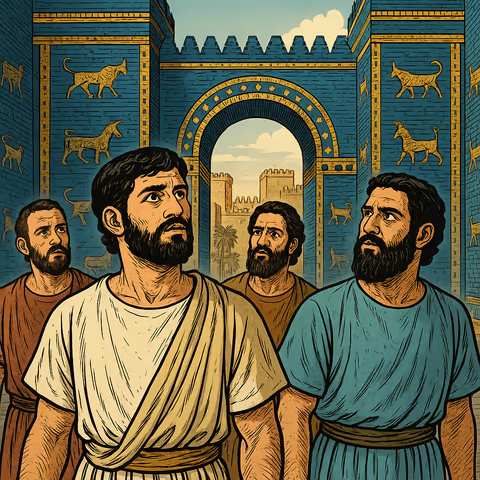 Differences
Differences
in Chapter One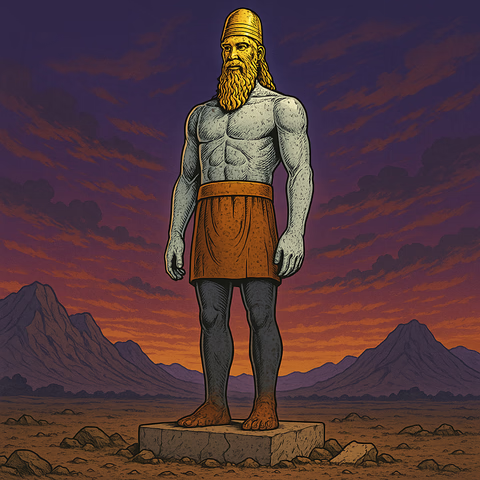 Differences
Differences
in Chapter Two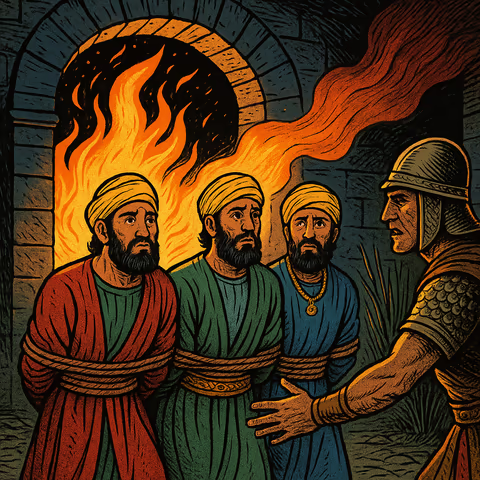 Differences in
Differences in
Chapter Three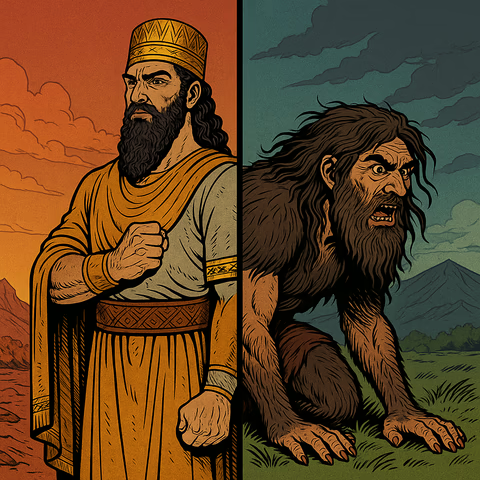 Differences
Differences
in Chapter Four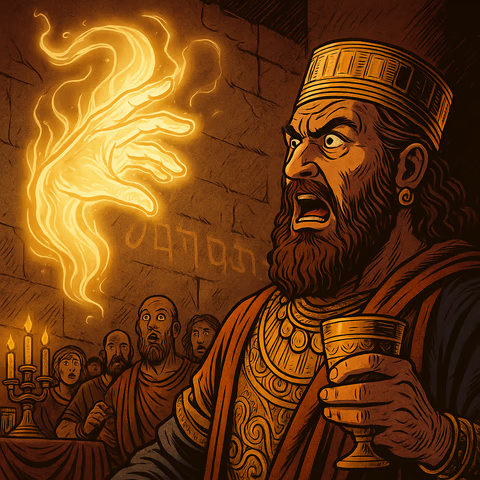 Differences
Differences
in Chapter Five Differences
Differences
in Chapter Six Differences in
Differences in
Chapter Seven Differences in Chapter Eight
Differences in Chapter Eight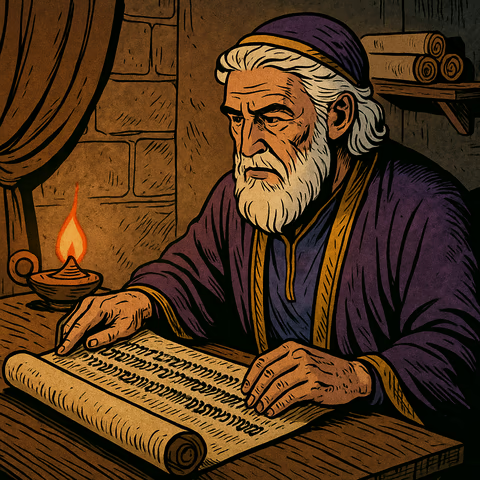 Differences
Differences
in Chapter Nine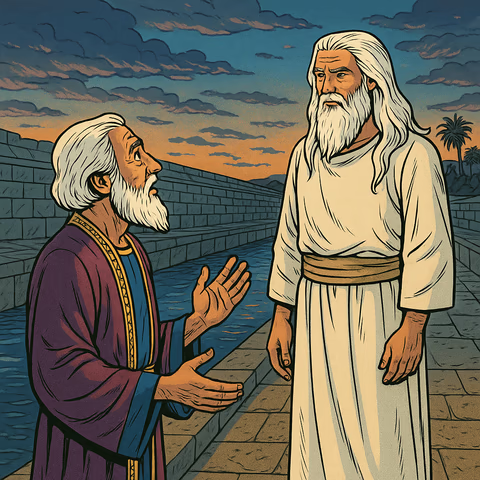 Differences
Differences
in Chapter Ten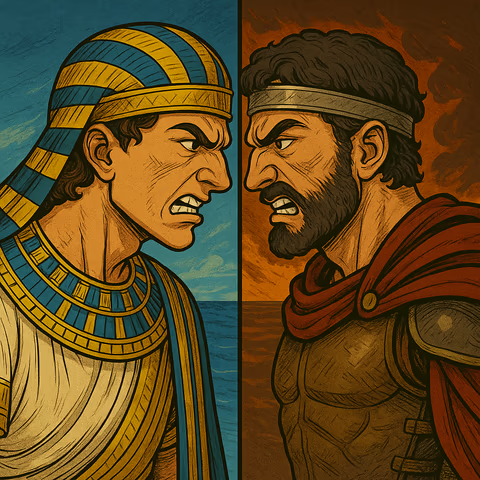 Differences in
Differences in
Chapter Eleven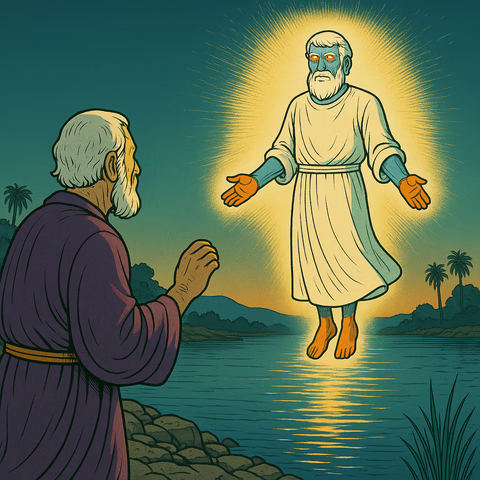 Differences in
Differences in
Chapter Twelve